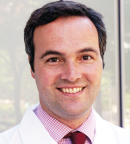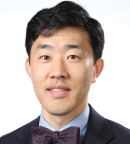In October 2015, ASCO launched the Health Policy Fellowship program to help the next generation of oncologists with an interest in health policy to develop the skills and experience necessary to achieve their goals and shape cancer care policy in an increasingly complicated and diverse care delivery environment. The 1-year program offers fellows educational opportunities in the following areas:
Practical experience working with ASCO policy/advocacy staff in crafting policy positions and statements
Small-group teaching sessions delivered by ASCO professional staff and qualified volunteers on topics such as the Congressional authorization/appropriation process, U.S. Food and Drug Administration organization and regulatory authority, drug and device approval processes, and payment-reform initiatives
Training in communication and leadership skills, as well as advocacy strategies
A mentored research project that advances or leverages an ASCO policy initiative.

This program has been a boot camp in cancer care policy and has exposed me to a multitude of areas of interest, including policy writing and advocacy.— Robert M. Daly, MD, MBA
Tweet this quote
The inaugural class of the fellowship program began on July 1, 2016, and ends on July 1, 2017. Robert M. Daly, MD, MBA, Assistant Attending Physician at Memorial Sloan Kettering Cancer Center in New York, and Steve Y. Lee, MD, Clinical Fellow in Hematology and Medical Oncology at New York University Langone Medical Center and a delegate to the American Medical Association House of Delegates for 2016–2017, were selected by ASCO to participate in this year’s fellowship program. Dr. Daly’s area of clinical interest is thoracic oncology, and Dr. Lee’s is genitourinary cancers.
The ASCO Post talked with Dr. Daly and Dr. Lee about their experience so far in the fellowship program and how it is influencing their career trajectory in oncology.
Appeal of the Program
Why were you interested in participating in ASCO’s Health Policy Fellowship program?
Dr. Daly: I had two very impactful research experiences in medical school. One was working for Harvard Medical International, a consulting arm of Harvard Medical School focused on improving care for communities across the globe. During that time, I worked in Mumbai to improve access to health care for a disenfranchised group called the hijras (as members of the transgender community are known in India and Pakistan). They were having difficulty accessing traditional health care, so we worked to create innovative solutions for delivering care to them. I collaborated with a leading nonprofit on this project, and it showed me the power that advocacy has for creating higher standards of care for people.
Coming from an MD/MBA background, I’ve also been interested in the operations of health-care systems. I worked with Dr. Elizabeth Mort, the Chief Quality Officer at Massachusetts General Hospital, on a project about where health-care leaders should focus their attention to improve hospital safety cultures, and it became my honors thesis.
Both of those experiences set me on a track of looking at health-care delivery and the steps you can take to innovate within that space.
I thought the ASCO fellowship would be a great complement to this research interest, because it would provide me with perspective on how health-care policy is crafted on the federal, state, and local levels; what the advocacy role is for physicians to make changes in cancer care delivery; and how legislation, such as the Affordable Care Act (ACA) and the Medicare Access and CHIP Reauthorization Act of 2015 (MACRA), works its way through Congress and impacts how we deliver care to our patients.

There are so many different practice patterns within oncology, and we must be careful to advocate for policy that will benefit all of our constituents without inadvertently harming one group over another.— Steve Y. Lee, MD
Tweet this quote
Dr. Lee: I’ve been involved in health-care advocacy since medical school either through the American Medical Association or a variety of state medical societies, and the advocacy tended to be that of higher-level advocacy, which influenced the direction of health care overall. As I start my career as a medical oncologist, especially in an era where the specifics of health-care policy are going to be particularly important for clinical practice across the country, I thought it would be an excellent time to learn more about how to advocate for my profession, as well as an opportunity to be introduced to the experts in crafting cancer-specific health-care policy.
This program has given me the chance to learn the ins and outs of oncology policy as well as how specific pieces of legislation affect the way we practice. But what surprised me was that advocating for oncology care can’t be monolithic. There are so many different practice patterns within oncology, ranging from academic practices with large research programs to small practices in rural communities, and we must be careful to advocate for policy that will benefit all of our constituents without inadvertently harming one group over another.
I’ve been assigned to work with Dr. Deborah Schrag [Chief, Division of Population Sciences at Dana-Farber Cancer Institute] on a research project to come up with guidelines for risk adjustment under MACRA rules. As I study the elements that might be necessary to better stratify the clinical environments that physicians face, it seems that the more information physicians submit, the better, but it might be harder for smaller practices to develop that information than larger practices. This is just one of the balances that has to be considered when making policy. That is one of the surprises in what I’ve learned this year.
Achieving Goals
How will the fellowship program help you accomplish your goals to help shape public health-care policy?
Dr. Daly: This program has been a boot camp in cancer care policy and has exposed me to a multitude of areas of interest, including policy writing and advocacy. We’ve spent time on Capitol Hill with our Congressional representatives advocating for issues important to ASCO. That gave me a clear perspective on how advocacy works in the legislative arena.
On the policy level, I’ve had the opportunity to interact with thought leaders in cancer care policy at ASCO, which has been a great mentoring experience for me. I’ve gotten to participate in ASCO’s Government Relations Committee meetings, on ASCO’s Task Force on Clinical Pathways as well as on ASCO’s MACRA Task Force, which has provided me with an in-depth look at the federal legislation that is changing health-care reimbursement.
The program has also helped me accomplish my goal of learning how cancer care policy is made and how we can influence it. The fellowship program has already impacted my academic writing and research, because I’m now incorporating what I’ve learned in the fellowship in my writing about cancer care delivery.
Affordable Care Act
Dr. Lee, you became involved in health-care advocacy in medical school, when you organized medical students to lobby local and federal legislators in support of the Affordable Care Act. What are your plans now that the ACA is in danger of being repealed?
Dr. Lee: I think Congress and the new Administration are discovering that despite the negative rhetoric regarding the Affordable Care Act (ACA), Americans are supportive of preserving certain elements of the law, including making sure that people stay insured, have reasonable access to care, and are protected for preexisting conditions. Most people can get behind these issues, and I’ll work with medical associations, including ASCO and the American Medical Association, to preserve those elements of the ACA.
Fellowship Benefits
How will the ASCO Health Policy Fellowship help further your oncology career?
Dr. Daly: There are several ways I see the program accelerating my research career and making me a better oncologist. One is through mentorship. Dr. Lee and I have received incredible mentorship from ASCO volunteers, such as Dr. Ray Page [medical oncologist at the Center for Cancer and Blood Disorders in Weatherford, Texas]. We flew to Texas to observe his practice and the different hats he has to wear as an oncology provider, business leader, and advocate for his patients and fellow providers, both in Texas and nationally. We have also met with physicians from federal agencies and Congressional representatives who are physicians. Thus, the program is exposing me to the policy and advocacy careers of community and academic physicians.
We have also received policy training in how to synthesize different perspectives and sources of data into a cogent policy paper with concrete steps for action. I’ll take these lessons with me throughout my career.
Dr. Lee: The program also offers training in the concrete skills necessary for effective advocacy. For example, we had the opportunity to participate in workshops alongside the ASCO Leadership Development Program and learned specifics on how to improve team leadership as well as how to communicate in public. In addition, the fellowship program gives us the opportunity to meet amazing people who are important both within ASCO and in the health policy advocacy arena.
ASCO Role
What will be your continuing role in ASCO once you have completed the fellowship program?
Dr. Daly: Currently, I’m participating in ASCO’s Clinical Pathways Task Force under the leadership of Dr. Robin Zon because it is relevant to the project on which I’ve been working. The Task Force has been very welcoming to having a fellow participant, and I have benefited from the members’ insights and mentorship. As part of the fellowship program, Dr. Lee and I have been given the opportunity to serve on an ASCO committee next year, so we will continue to play a role in ASCO.
ASCO has been innovative in creating this fellowship. ASCO leadership is dedicated to making sure that the 1 week per month we spend at ASCO headquarters is used to develop our thinking on policy, and this has been especially exciting in an election year. I look forward to using this education to contribute to improvements in the care of our patients.
Dr. Lee: We’d like to thank our mentors and staff at our home institutions for giving us the time and clinical coverage to participate in such a valuable program. Our time in the fellowship program is very high yield, and we appreciate this opportunity. ■
Disclosure: Drs. Daly and Lee reported no potential conflicts of interest.

